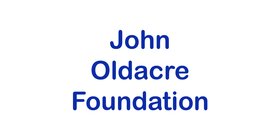
Teresa Meadows
Growing up on a sheep and beef farm in Dorset gave me an inbuilt passion and appreciation for the agricultural industry. After studying Geography at university, volunteering, travelling and working around the world, I worked in farm advice roles with an environmental focus on my return. Firstly in the North East and North West for Natural England, working with farmers who were interested in environmental stewardship schemes to the benefit of their farmed environment, income and wider landscape. This was then followed by my role as a Catchment Advisor in the Chelmer and Blackwater Catchment for Essex & Suffolk Water, working with farmers to improve water quality across the catchment.
I joined AHDB (Agriculture and Horticulture Development Board) in 2016 as a Knowledge Exchange Manager covering East Anglia for the Cereals and Oilseeds sector, working with highly motivated farmers to improve their yields and business performance. Through the Monitor Farm, Strategic Farm, Arable Business Groups and wider activities, the importance of how to effectively share research and expertise between peers and engender change on-farm became a great interest. Following a short visit with FAR in New Zealand, it became evident that we can learn a lot from experiences and best practices in implementing Integrated Pest Management (IPM) from around the world. Now, leading the delivery of the environmental offer for BASIS in terms of training and professional development across the industry, combined with a role in public affairs, this affords a unique opportunity to support the industry with the knowledge, skills and continuous learning to put new methods and techniques into practice.
With the increased public awareness of farming, the need to improve biodiversity, the loss of key actives for plant protection products and a want from the farming industry to learn – I believe that the time is right to study and find best practice on IPM from around the world to the benefit of arable growers and agronomists in the UK. Having conducted and been involved in research into the social science arena in agriculture, I am also fascinated by the motivations and barriers of farmers to learn and take up new ideas. I am very much looking forward to talking to farmers and organisations across the globe to further all of our knowledge in IPM for the benefit of the industry.
Outside of work, I run a community, grass roots volunteer programme based in the cloud forests of Ecuador for volunteers from around the world, sit on the national FCN Helpline and enjoy hill walking, cycling, being out enjoying the countryside and exploring new places.
I am very grateful to the John Oldacre Foundation for the opportunity to do my Nuffield Scholarship and to BASIS for their support with my study and travels – I look forward to sharing my findings.
John Oldacre Foundation

Study Overview
Conventional arable farming is changing. Farmers in the UK have already lost key plant protection products and are set to lose additional insecticides, fungicides and other synthetic inputs in the next five years. This, combined with the need to lower the cost of production under the insistence that food prices remain low, while also improving yields and protecting the environment, has meant that IPM (Integrated Pest Management) has become vitally important.
IPM’s holistic farm approach to pest, weed and disease control is not a new concept. Existing information and research outlines what needs to be done, how it could be achieved and why this is necessary. Despite this, there has not yet been widespread adoption by arable farmers in the UK to move from a ""out of a can"" response to fully take this systems approach for on-farm management.
This study will explore how countries around the world have enabled behaviour change for the adoption of IPM, have managed the associated risks and stopped the barriers for its uptake. The aim of this Scholarship is to bring back techniques and recommendations to allow for the rapid adoption of IPM for the benefit of arable farm businesses and UK agriculture.